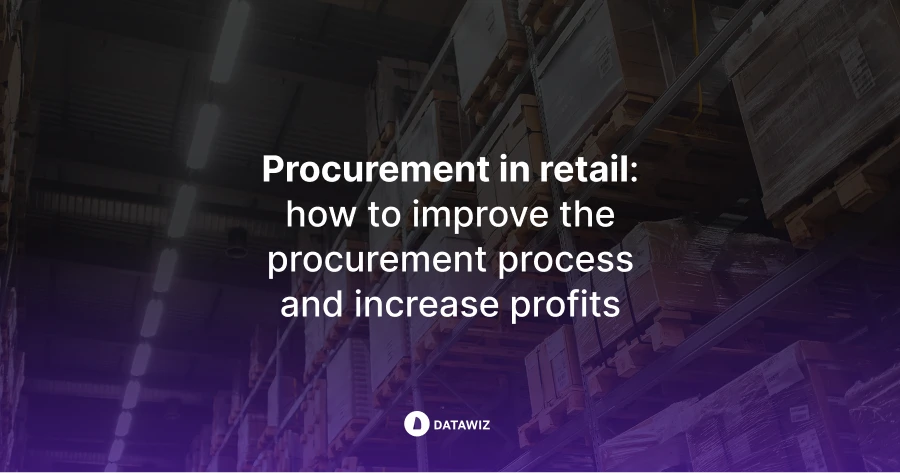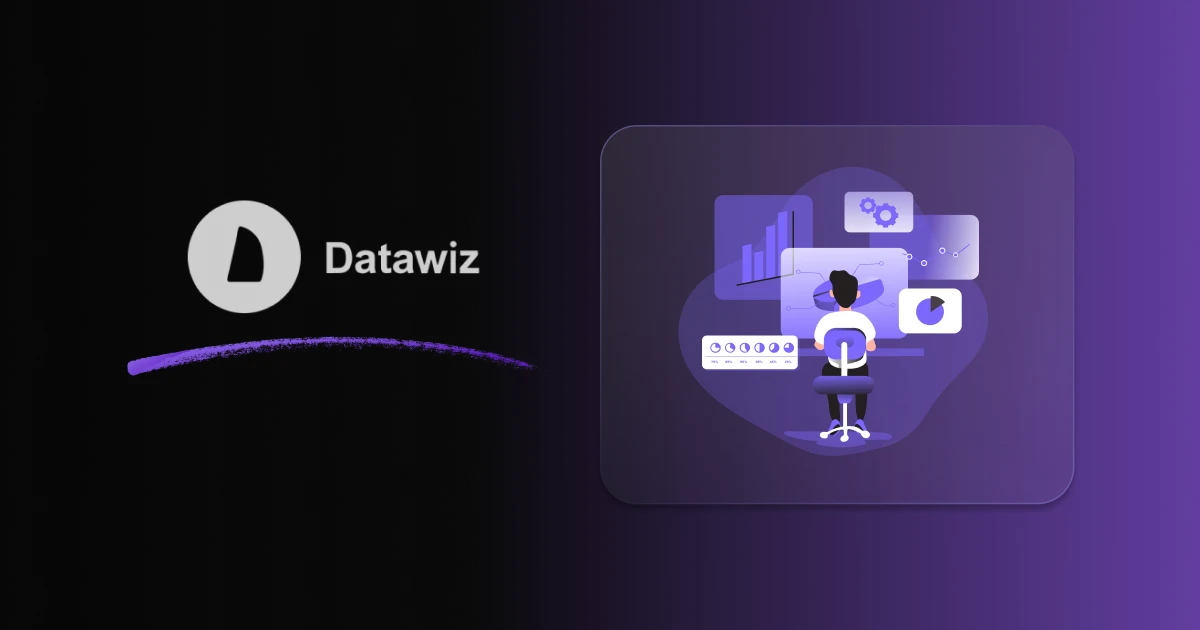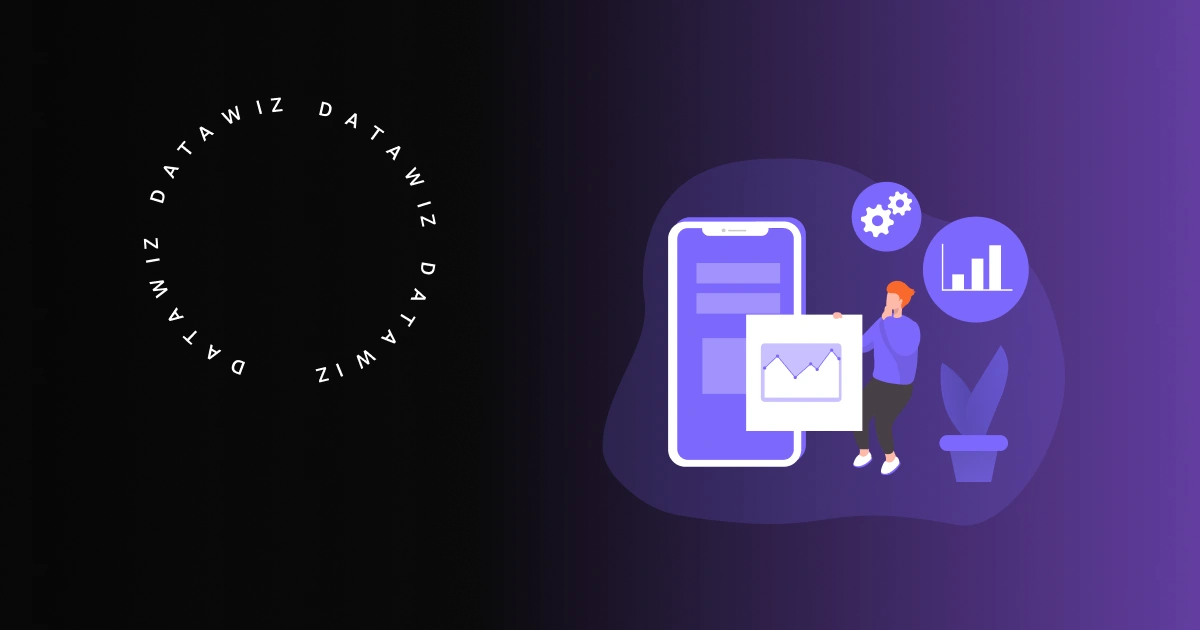Procurement is a real strategic game that requires highly detailed research and reasonable steps. If you want to avoid losing this battle to your competitors, you need to keep an eye on the data and avoid chaos. After all, moderate actions based on previous data allow you to control the situation. So, you need to follow a few rules to optimize procurement and make your life easier. A well-defined retail procurement strategy turns procurement from a reactive function into a controllable business process.
What is retail procurement?
Retail procurement is the process of providing retail businesses with goods for sale to end consumers. The main goal of retail procurement is to ensure that goods are available at the right time, in the right place, at the right price to meet customer demand. In the broader context of procurement in the retail industry, this process directly affects revenue, customer satisfaction, and inventory efficiency.
The main aspects of procurement for retail business:
- Demand analysis – studying sales, seasonality, and trends to accurately forecast needs and support informed retail purchasing decisions.
- Supplier selection – evaluation of prices, reliability, product quality, and terms of cooperation as part of structured retail sourcing.
- Pricing – controlling the cost of purchases, discounts, and margins to increase profitability and support an effective procurement strategy.
- Optimal supply – planning the frequency and volume of deliveries to avoid shortages or overstocks across stores and warehouses.
- Inventory control – managing inventory balances to minimize losses and efficiently use resources throughout the retail network.
Step-by-step guide to optimize procurement system
Procurement optimization may seem like a complicated task, but in fact, this process can be greatly facilitated if you approach it systematically, step by step, without skipping any stage and having the necessary data at hand for analysis. A structured approach is essential for scalable retail procurement.
Demand analysis and forecasting. This is what will help us identify the needs of our customers, track the dynamics of purchases of goods of different brands, sizes, and tastes. Based on historical data, the manager can easily make assumptions about the next purchases. If you see that ice cream sales increased by 30% in June, you should increase your purchases in advance. But you should also take into account the difference in dynamics during seasonality, promotions, and marketing campaigns. Therefore, having all analytical data in one place is a vital option.
- Analysis of suppliers and your experience with them. Price is usually the decisive factor in selecting distributors, but you should also consider their reputation, efficiency, product quality, speed, and reliability of delivery. When choosing suppliers, always consider not only price but also their values. The social and ethical reputation of your brand directly depends on who you cooperate with. In addition, it is worth having friendly relations with contractors, because when you have positive relationships with suppliers, they are more willing to meet your needs, offer better terms of cooperation, and ensure timely delivery of goods. Strong supplier relationships are a cornerstone of sustainable retail sourcing and long-term procurement success.
- Supply management and inventory optimization. Losing a customer just because the products were not delivered in time sounds like a nightmare. It is inventory control that helps to maintain the optimal level of goods, avoiding stock-outs and shortages. It is important to take into account the balances of the items you plan to purchase. That's why analyzing stocks + analyzing the dynamics of product (brand) purchases + calculating the time for delivery to a specific store = the perfect formula for timely replenishment of stocks within a mature retail procurement strategy.
Optimal stock = average daily sales × shelf life
This formula will help you avoid stock-outs and write-offs.
Analytics is the main weapon of any procurement manager, as it enables them to make informed decisions based on data, not intuition or guesswork — a key requirement for modern procurement in the retail industry.
Best practices for retail procurement management
To move from operational purchasing to strategic control, retailers should follow several proven best practices:
- Centralize procurement data. A single source of truth for sales, inventory, and supplier performance eliminates conflicting decisions and improves forecasting accuracy.
- Segment procurement by category. Fast-moving staples, seasonal products, and promotional items require different replenishment logic, approval workflows, and safety stock levels.
- Measure supplier performance regularly. Track delivery accuracy, lead times, fill rates, and price stability to support data-driven negotiations and continuous improvement.
- Automate routine retail purchasing tasks. Automation reduces human error, speeds up replenishment cycles, and frees procurement teams to focus on strategic supplier management.
Types of retail procurement
Understanding procurement types helps retailers apply the right tools and controls to each area:
- Direct procurement. Purchasing goods intended for resale, such as food, apparel, electronics, or household products. This type directly impacts revenue and customer satisfaction.
- Indirect procurement. Acquiring goods and services that support operations but are not sold to customers, including store equipment, IT systems, office supplies, and logistics services.
- Services procurement. Contracting third-party providers for maintenance, marketing, security, analytics, and consulting services that enable efficient retail operations.
Each type requires a tailored procurement strategy to balance cost control, service quality, and operational continuity.
Challenges and advantages of retail procurement
Retailers face several procurement challenges, including demand volatility, supplier dependency, long lead times, and inventory imbalances. Without proper analytics, these issues lead to overstocks, write-offs, and lost sales.
However, when managed strategically, retail procurement offers clear advantages:
Improved product availability
Lower operational costs
Stronger supplier partnerships
Higher inventory turnover
Better customer experience
Role of analytics in retail procurement
Datawiz BI is an analytical service that allows you to collect and analyze data in one place. This is your chance to easily compare numbers with dashboards or share selected insights with suppliers to improve collaboration.
What opportunities does the analytical service provide?
Assess the sales dynamics of a particular product or brand
Analyze typical combinations of products in consumer baskets
Assess overall inventory health
Track products that have not been sold recently
Receive notifications about product shortages in the warehouse
Assess the reliability of suppliers
Along with this service, the purchasing manager no longer needs to communicate with each department separately, because all the necessary information is available in one system. Reports are generated in just a few seconds from the latest updated data.
Datawiz BI is a chance to avoid chaos in spreadsheets and see the real picture of procurement performance in each store.
 What's new?
What's new?





 No credit card required
No credit card required